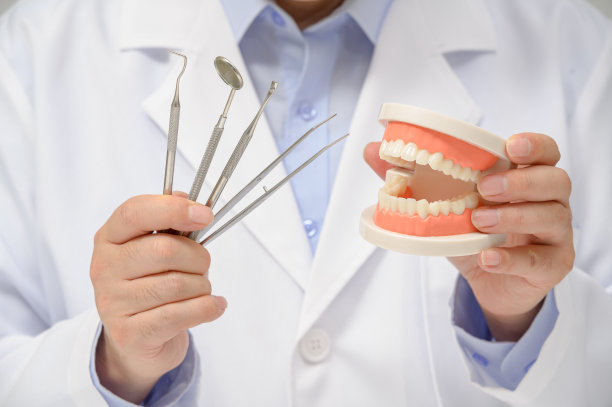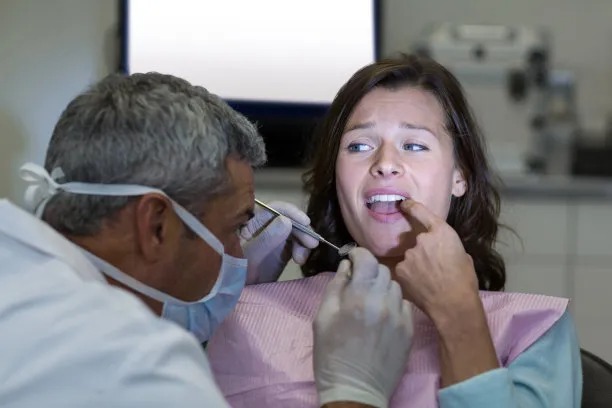Summary: Dental health is critical for overall well-being, and getting a filling is often a necessary procedure to restore tooth integrity. This article discusses essential precautions you must follow before and after undergoing a dental filling procedure to ensure optimal oral health. We dive into important preparation measures, aftercare tips, dietary adjustments, and the significance of follow-up appointments. By adhering to these guidelines, you can enhance your recovery process and maintain a healthy smile for years to come. In this exploration, we provide actionable insights into achieving the best possible outcome from your dental filling experience.
1. Preparation Before Your Dental Filling

Before undergoing a dental filling procedure, its essential to prepare effectively. First and foremost, you should have a detailed discussion with your dentist about the treatment plan. This includes understanding the type of filling materials being used, the procedure itself, and any potential side effects. Knowledge is power, and being informed can greatly reduce any anxiety you might feel.
Another critical precaution is to ensure that you are healthy prior to your appointment. If youre experiencing any cold, flu, or other medical issues, consider rescheduling the procedure. Your immune systems strength can significantly impact your recovery and healing efficacy after the filling is placed.
Finally, arrange for post-procedure transportation, especially if the dentist plans to use sedation. Having someone to drive you home can ensure your safety and comfort, allowing you to focus on your oral health without any added stress.
2. Aftercare Important for Recovery
After receiving a dental filling, proper aftercare is paramount for optimal recovery and health. One of the first things to consider is the numbness you might experience due to anesthesia. Dont consume any food or beverages until the numbness has fully worn off—this prevents accidental biting of your tongue or cheeks.
In the first 24 hours post-procedure, it’s wise to avoid hard, sticky, or chewy foods, as these can disrupt the filling and potentially lead to further damage. Opt for soft foods that are easier on your teeth while they adjust to your new filling.
Additionally, maintain good oral hygiene. Gently clean your teeth and the filled area, but avoid vigorous brushing right away to lessen discomfort. Utilizing an alcohol-free mouthwash can also benefit your healing process by keeping the area clean without causing irritation.
3. Dietary Adjustments to Consider
Dietary choices after a dental filling procedure are crucial for your oral health. Initially, it’s best to focus on a soft food diet to avoid putting pressure on the newly filled area. Foods like yogurt, applesauce, and mashed potatoes are ideal choices during the first few days.
Avoid hot beverages or foods that could provoke sensitivity in your teeth. Ice cream might be tempting, but indulging in extreme temperatures can aggravate the filling and cause discomfort. It’s essential to listen to your body and avoid anything that feels uncomfortable.
Furthermore, staying hydrated is essential. However, be cautious with acidic beverages, such as orange juice or soda, as they can erode tooth enamel. Instead, opt for water or herbal teas to soothe your throat while promoting healing.
4. Importance of Follow-Up Appointments
Follow-up appointments with your dentist are a vital step in ensuring the longevity and effectiveness of your dental filling. Don’t skip them! These visits allow your dentist to evaluate the filling and ensure it is settling correctly in your mouth.
If you experience any discomfort or ongoing sensitivity, be sure to communicate this with your dentist during your follow-up. They can provide solutions and make necessary adjustments to the filling if needed. A simple check-up can prevent future complications and save you from more extensive issues.
Moreover, regular dental check-ups — ideally every six months — are key in maintaining your overall oral health. Consistent monitoring can prevent future cavities and other dental problems that may require further fillings.
Summary:
Optimal oral health requires attention before and after dental filling procedures. By preparing adequately, following post-procedure care instructions, making thoughtful dietary choices, and keeping up with follow-up appointments, you can ensure a smooth recovery and maintain the integrity of your dental work. These essential precautions not only support healing but also contribute to long-term dental health.
This article is compiled by Vickong Dental and the content is for reference only.
Vickong Dental
Vickong Dental is a large medical group established in Hong Kong in 2008 by professors from well-known medical universities in Guangdong and Hong Kong, as well as medical doctors from key national '985' universities (including Master's supervisors and senior professors). The chain of branches brings together expert dentists with PhDs and Master's degrees from Hong Kong and Mainland China, committed to providing high-quality dental treatment.
"Vickong Dental Practices the University Motto of 'Healing and Serving Society,' with a Stable Operation for Sixteen Years. It Has Been honored with Hong Kong Enterprise Leaders's Choice,' and is a Global Trusted Implant Center for the Nobel Implant System. Recommended by Hong Kong Metro Broadcast and Guangdong Television, it Serves Customers from Over Thirty Countries and Regions, Gaining the Trust and Favor of Citizens from the Guangdong-Hong Kong-Macau Greater Bay Area and Surrounding Cities.

Thousands of customers' unanimous praise
The most recognized and highly recommended dental service by customers in the Guangdong-Hong Kong-Macau Greater Bay Area
We Ensure You Receive Detailed Care and Attention Here
Hong Kong standards, Shenzhen prices, Your Trusted English-speaking dentists

Vickong Dental Medical-Grade Instrument Disinfection Process
Vickong Dental Medical-Grade Instrument Disinfection Process

Vickong Dental Chain: A Warm and Comfortable Environment for Treatment






Appointment Hours

Q&A
Why choose Vickong Dental?
Vickong Dental practices the university motto 「Medicine to Benefit Society」, with each branch bringing together highly qualified dentists with doctoral and master’s degrees from Hong Kong and the Mainland, and has maintained seventeen years of steady operation。Recipient of 「2024 Hong Kong Enterprise Leaders Brand」, 「2025 Hong Kong Enterprise Leaders Brand」, a Nobel Biocare Global Trusted Implant Center, and a brand recommended by Metro Radio Hong Kong and Guangdong TV。
To date, we have served customers from more than thirty countries and regions,earning exceptionally high word-of-mouth recognition and trusted recommendations from residents across the Guangdong-Hong Kong-Macao Greater Bay Area and surrounding cities
We have eight major branches in Zhuhai、Shenzhen,and a consultation and service assurance center in Hong Kong,so you can book a free consultation at any time for any questions,which is very reassuring.
If I do not accept the quotation after the CT scan, will I be charged??
No! As long as the actual treatment has not started, you will not be charged any fees.
Will there be any additional charges during the treatment process?
No, there won’t be any additional charges. Before treatment begins, we will clearly explain the treatment plan and its corresponding fees. Only after the patient agrees and signs the consent form will we proceed with the dental service.
Can I pay in Hong Kong dollars?
Yes. Vickong Dental accepts payment in Hong Kong dollars. The amount will be converted based on the exchange rate of the day, and the applicable rate will be clearly communicated to you in advance.
Can I reschedule my appointment at any time?
Yes. Please contact us via **WeChat** or **WhatsApp** as early as possible, providing your original appointment time and details, along with your preferred new date and time slot for rescheduling.













